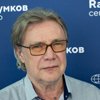Russia tries to raise the stakes during the talks on the exchange of prisoners in order to force Ukraine to make concessions.
The Center for the control and coordination of the ceasefire is foreseen by the Minsk agreements and works in the Donetsk region since 2014. It includes representatives of Ukraine, Russia, and also pro-Russian separatists.
Therefore, the statement of the Russian side about the withdrawal of its representatives — this is the continuation of Russian tradition in this conflict, another attempt to shift the problem from a sick head to a healthy one.
However, this is a very alarming signal for us. This formal reason may hide the Kremlin intention to increase the intensity of the conflict in Donbas. Due to the fact that Russian representatives don’t participate in this group, you can safely blame Ukraine for everything. They are not allowed to control the situation, Kyiv allegedly deprived them of such a possibility, and therefore Ukrainian representatives now do what they want. That’s why this is a bad signal. In my opinion, such statements are clear evidence that Russia would like to increase the intensity of military actions in Donbas.
Russian military’s behavior is not news and revelation for the Ukrainian military. The General Staff of Ukraine was aware of such possible developments. The military is always preparing for the worst, and not only for such “gifts” from Russia. Ukrainian troops were ready for a long time to increase the activity of the sabotage and reconnaissance groups of the enemy, and to increase the activity of militants on the demarcation line.
The ATO headquarters informed that pro-Russian separatists in recent days intensified the shootings. I associate this with the approaching of the exchange of prisoners. Negotiations are ongoing at all levels, they may be informal, may be bilateral. And what we are seeing now is Russia’s usual tactic — to raise rates during the negotiation process in order to force Ukraine to make concessions and accept enemy’s conditions.
Speaking about the forecast of whether the announced exchange of captives will take place in the near future, I would like to hope for the best. It is hard to say if it really will be: Russians have so many cockroaches in their head that you simply cannot keep track of them.





